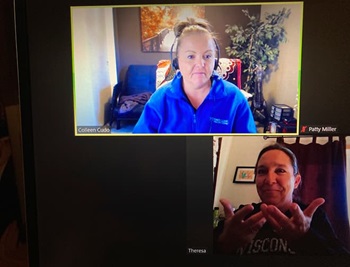
States seeking to lower health-care prices are weighing concepts comparable to capping hospital charges primarily based on Medicare funds, that are typically decrease than charges employer-sponsored plans pay.
Laws being thought of in Indiana (Home Invoice 1004) features a provision that might penalize nonprofit hospitals that cost greater than 260% of Medicare charges. Many of the state’s hospitals are nonprofits.
The laws “will truly assist decrease costs successfully instantly for Hoosiers—for staff and their employers,” Gloria Sachdev, president and CEO of the Employers’ Discussion board of Indiana, stated in an interview. Rand Corp. research have proven Indiana’s hospitals cost among the many highest within the nation in comparison with Medicare costs, and the state’s employers have been combating to get hospital costs down.
About one-third, the biggest single share, of US well being spending goes to hospitals. Hospital expenditures grew 4.4% to $1.3 trillion in 2021, the Facilities for Medicare & Medicaid Providers reported, and employer well being plans are pushing to regulate the prices. Along with price caps, some states are additionally pursuing measures comparable to limiting probably anticompetitive clauses in contracts between well being insurers and hospitals.
HB 1004 is scheduled to be voted on Feb. 20 within the Home Public Well being Committee within the closely Republican Indiana legislature. It’s one in every of three payments the 78-member Employers’ Discussion board, which focuses on well being care, hopes will move in the course of the legislative session, which ends April 29. The opposite two payments take care of noncompete clauses and site-neutral funds.
The excellent invoice would require site-neutral funds—or funds on the identical price for a given service whatever the care setting—by prohibiting hospital facility charges from being added for providers that happen in an outpatient workplace setting. That will lead to funds equal to what unbiased physicians get for a similar service, Sachdev stated.
The invoice would additionally prohibit well being insurers and hospitals from getting into “all or nothing” clauses of their contracts that mandate together with all hospitals inside a hospital system in insurer networks, and it could prohibit “anti-tiering” clauses that block insurers and employer plans from implementing monetary incentives in plan designs steering beneficiaries to raised high quality, higher worth hospitals.
Noncompete Clauses Focused
The Indiana Senate handed Senate Invoice 7 Feb. 7 by a 45-5 vote. That invoice would bar newly employed physicians from getting into into noncompete clauses with employers. That doesn’t have an effect on hospital prices, however Sachdev stated it could assist the state preserve extra physicians. Senate Invoice 6, permitted by the Well being and Supplier Providers Committee Jan. 9, requires site-neutral funds.
Web site-neutral insurance policies’ financial savings potential has been proven in a nationwide survey. The Committee for a Accountable Federal Finances issued a report Feb. 14 discovering that site-neutral insurance policies in business insurance coverage might cut back nationwide well being expenditures by as much as $458 billion over the following decade whereas reducing the federal funds deficit by as much as $117 billion.
“For the final a number of years our legislators have been making an attempt to do issues in order that the market will self-correct,” by specializing in clear costs, offering good religion estimates so customers can store higher for well being care, and compiling information on health-care costs in an All Payer Claims Database, Sachdev stated. However “transparency in and of itself is just not going to trigger costs to return down,” she stated.
Indiana legislative leaders despatched a letter in December 2021 to the state’s hospitals and well being insurers threatening legislative motion except hospital costs are lowered to nationwide common ranges by 2025. To date, solely Indiana College Well being has dedicated to doing so.
Hospital Group Opposes Payments
The Indiana Hospital Affiliation opposes the payments, President Brian Tabor stated in an interview. The state shouldn’t “be capping costs at this arbitrary degree,” he stated, referring to the 260% of Medicare restrict in Home Invoice 1004.
Furthermore, the Rand report’s reliance on evaluating hospital business insurance coverage charges to Medicare “doesn’t permit for apples-to-apples comparisons throughout states or between hospitals,” Tabor stated. “The correct option to consider state rankings or to check hospitals relies on precise worth information that’s accessible by transparency efforts.”
Proscribing hospitals from charging facility charges for doctor providers is “in direct battle” with Medicare necessities, Tabor stated. Facility charges cowl hospital overhead bills, he stated. “Many hospital contracts observe Medicare billing rules,” he stated. The location-neutral laws “would override these contracts,” and would adversely have an effect on small, regional well being programs, he stated.
The noncompete restrictions for physicians are overly broad and unfairly give attention to hospitals, Tabor stated. “The biggest development in doctor observe acquisition is within the house of the personal fairness and insurance coverage subsidiaries,” he stated. UnitedHealth Group Inc.’s OptumHealth unit is without doubt one of the nation’s largest employers of docs with about 60,000 nationwide.
Connecticut and Different States Act
In Connecticut, Gov. Ned Lamont (D) is looking for passing laws that might cap hospital out-of-network charges at Medicare charges, in addition to prohibit anticompetitive contracting practices between well being plans and hospitals.
Washington state, Colorado, and Nevada have the authority to make use of costs primarily based on Medicare charges for public choice plans of their Obamacare marketplaces, however solely Washington is presently doing so. Montana was the primary state to reference Medicare costs for state worker plans, and and it’s altering to a brand new association. Oregon presently makes use of that system for its state worker plan.
“There may be elevated curiosity in addressing excessive health-care prices throughout the nation,” Maureen Hensley-Quinn, senior program director for protection, value, and worth on the Nationwide Academy for State Well being Coverage, stated in an interview.
The Connecticut invoice that might tie out-of-network charges to 100% of Medicare charges is meant “to maintain hospitals on the negotiating desk with well being plans who’re making an attempt to convey down reimbursement charges, however can have challenges in doing that with an enormous highly effective hospital or well being system,” she stated.
Hospitals with sturdy market energy “can merely say we’ll exit of community,” Hensley-Quinn stated.
SF 883 in Minnesota features a provision that enables well being insurers to supply plans that use reference costs primarily based on Medicare, and A1249 has been launched in New Jersey, which might use Medicare reference pricing for the state’s worker well being plan, Hensley-Quinn stated.
Referencing pricing to Medicare shouldn’t stop well being plans from implementing value-based care, which many well being plans try to place in place to get away from fee-for-service funds, Hensley-Quinn stated. Price-for-service funds are believed to inflate health-care prices by encouraging over-use of providers fairly than offering care that provides one of the best worth.








